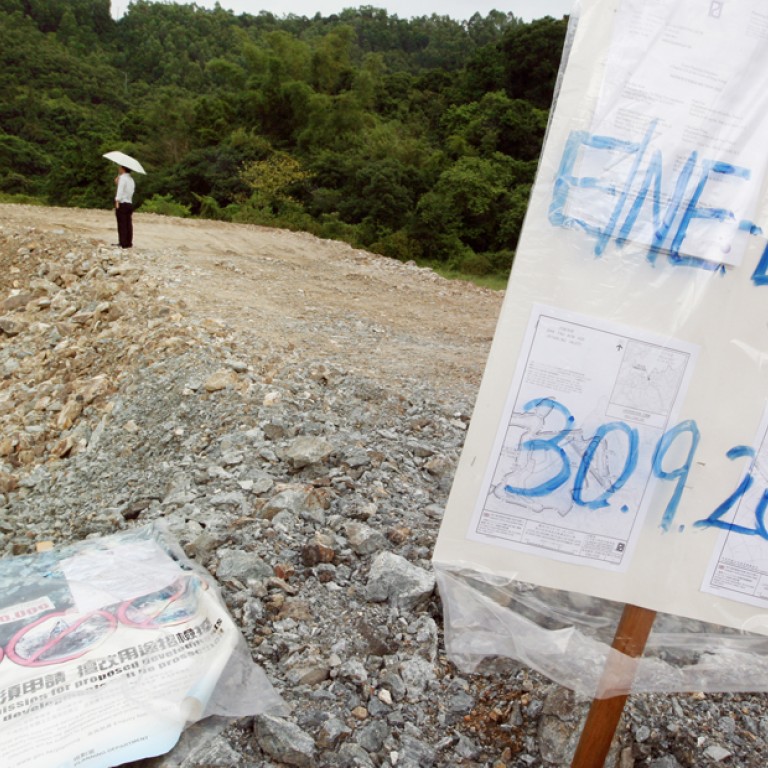
The mystery of border enclave Luk Keng's 'special administrative region'
In the border enclave of Luk Keng, the area outside the Fat Kee grocery store in Kai Kuk Shue Ha village is a "special administrative" region of sorts. It lies within a country park but is also part of the village area - known officially as the "village environs".
In the border enclave of Luk Keng, the area outside the Fat Kee grocery store in Kai Kuk Shue Ha village is a "special administrative" region of sorts.
It lies within a country park but is also part of the village area - known officially as the "village environs". In theory, park rules are to be respected there, but in reality village norms prevail.
The setting might lead a visitor to believe this is another typical New Territories village: land partially covered with concrete; temporary car parks offered for a fee; signs of construction waste being dumped; and chopped down trees.
So it only adds to the confusion to discover that some of the area is zoned for conservation. Parts are privately owned, but those owners have never prevented access to the public. There are no signs warning visitors to stay away.
For years, the area outside the store has been very popular as an informal trailhead for hikers; a temporary shelter offers a place to take a rest.
But there appears to be no sign marking where the country park and trail begins. A sign for the trail, and one warning against cycling, stand 200 metres from the park's boundary - perhaps in a bid to avoid the section of private land.
"I am not sure if this is part of the country park," said one hiker who had visited the popular Fung Hang Family Walk. "But it doesn't matter as long as the access is not blocked."
Cars can get there directly, but only via Bride's Pool Road. By law, entering any country park by vehicle requires a permit issued by the country park authority.
Meanwhile, local villagers have little interest drawing attention to the situation, which may be the result of a mutually beneficial deal.
Responding to inquiries, a spokesman for the Agriculture, Fisheries and Conservation Department said it had found no irregularities in the area, but it would monitor the situation.
